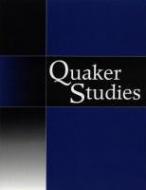
Article Title
A Case of Political Philanthropy: The Rowntree Family and the Campaign for Democratic Reform
Abstract
This article examines the attitude of the Rowntree family - and in particular its three prominent members, Joseph, Arnold and Seebohm Rowntree - to campaigns for democratic and constitutional reform in the later nineteenth and early twentieth centuries. It explores their views on women's suffrage, reform of the House of Lords and proportional representation, and their practical involvement in the promotion or otherwise of democracy in their dealings with the press, their model community at New Earswick and in the adult education institutions with which they were associated. The article argues that, in common with many other Quakers, the Rowntrees' commitment to practical philanthropy outweighed their interest in political reform, and that their commitment to the latter was, in practice, equivocal.
Recommended Citation
Davies, Jonathan S. and Freeman, Mark
(2005)
"A Case of Political Philanthropy: The Rowntree Family and the Campaign for Democratic Reform,"
Quaker Studies: Vol. 9
:
Iss.
1
, Article 7.
Available at:
https://digitalcommons.georgefox.edu/quakerstudies/vol9/iss1/7
